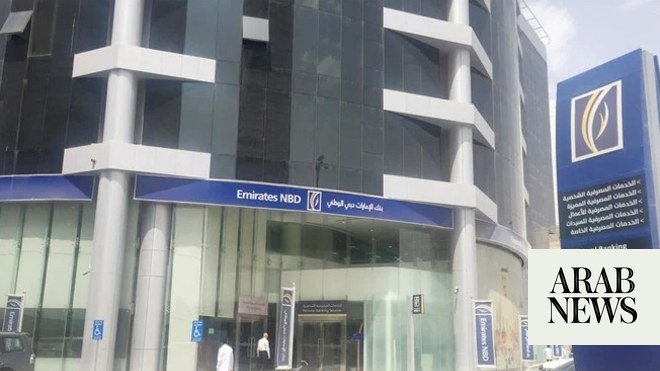DUBAI: Emirates NBD won a lead spot on all Dubai initial public offerings this year, boosting its fees and reviving a long-dormant business in the face of stiff competition from local and international banks.
Dubai’s biggest lender, majority owned by Dubai’s government, helped run the IPOs of Dubai Electricity and Water Authority, business park operator Tecom and toll-road operator Salik, which have collectively raised over $7.5 billion.
ENBD climbed to claim the sixth-highest fees from Gulf IPOs from 12th last year, making about $14.55 million so far this year and $4.85 million in 2021, according to Refinitiv data.
HSBC ranks first while Saudi National Bank and Riyad Bank are second and third, the data showed.
ENBD, the United Arab Emirates’ second biggest lender by assets, is known for its strong debt franchise but has shifted focus to its equities capital markets (ECM) business to keep up with the surge in deals and as bond issuance plummeted this year on market volatility and rising interest rates.
ENBD has been “building on their research capabilities and their distribution reach through their private banking and retail clients,” said Mohammed Ali Yasin, an investment and capital markets adviser in Abu Dhabi.
It conscripted its debt bankers to work on ECM deals and also hired at least two junior investment bankers, sources familiar with the matter said.
Emirates NBD declined to comment on Friday ahead of its results next Thursday.
ENBD’s ECM business is highly dependent on new business in Dubai’s equity markets, which for years were saddled by bearish investor sentiment following the 2014 oil price drop, exacerbated by a flurry of company delistings.
Dubai has moved to shore up its markets amid heightened competition from other Gulf states including Saudi Arabia, announcing plans in November to list 10 government-linked companies.
Over $15 billion has been raised in listings across the Gulf so far this year, according to Refinitiv data. Saudi Arabia had 24 IPOs that raised $4.75 billion, while the UAE had seven that raised more than $10 billion, the data showed.
The region has seen a boost of passive flows from investors since MSCI removed Russia from its emerging markets index in the wake of its invasion of Ukraine.
“If there’s any bright spot at the moment globally it exists in the Gulf, with markets experiencing a fomo (fear of missing out) effect from investors,” said Samer Deghaili, co-head of capital financing & investment banking coverage for MENAT at HSBC.
With new investors entering the region, many large funds are also making their way to the Middle East, “meeting bankers, some of them road testing new listings to see that from a settlement, and operational perspective, it works,” Deghaili said.



